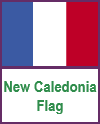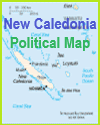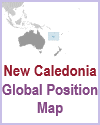New Caledonia, a French overseas territory in the South Pacific, is renowned for its rich cultural diversity and stunning natural beauty. The archipelago includes the main island of Grande Terre, the Loyalty Islands, the Isle of Pines, and several smaller islands. The capital city, Nouméa, located on Grande Terre, serves as the economic and administrative hub, offering a blend of French and Melanesian influences.
With a population of approximately 270,000 people, New Caledonia boasts a mix of indigenous Kanak people, Europeans, Polynesians, and Asians. This cultural mosaic is reflected in its vibrant traditions, languages, and festivals. The Kanak culture, with its intricate art, dance, and ceremonies, is particularly prominent.
Economically, New Caledonia is rich in natural resources, particularly nickel, which is a major export and a significant contributor to the economy. Other key sectors include tourism, agriculture, and fisheries. The archipelago’s stunning lagoons, which are listed as a UNESCO World Heritage site, attract visitors with their coral reefs, marine biodiversity, and pristine beaches.
New Caledonia enjoys a high degree of autonomy, with ongoing discussions about its political status and potential independence from France. Despite these complexities, the territory focuses on sustainable development and preserving its unique cultural and natural heritage.
|












